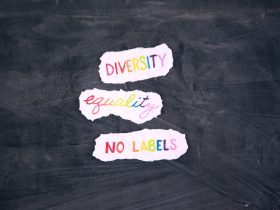In today’s world, where social and environmental issues are at the forefront of global conversations, ethical investments have emerged as a powerful tool for driving positive change. By aligning financial resources with values of equality and inclusion, ethical investors have the opportunity to shape a more just and sustainable society. In this article, we will delve into a series of captivating case studies that showcase the success stories of ethical investments in promoting equality and inclusion. These stories exemplify how financial decisions can be a catalyst for social transformation and serve as an inspiration for individuals and institutions looking to make a meaningful impact.
Case Study 1: The Gender Lens Investing Initiative
The Gender Lens Investing Initiative is a remarkable example of how ethical investments can contribute to breaking gender barriers and fostering greater gender equality in the business world. This initiative focuses on investing in companies that prioritize gender diversity and empower women in leadership positions. By directing financial resources towards these progressive businesses, the Gender Lens Investing Initiative has successfully increased the representation of women in boardrooms, C-suite positions, and other decision-making roles. Through their strategic investments, they have also improved gender pay equity and supported initiatives that promote the economic empowerment of women globally.
In addition to financial gains, the Gender Lens Investing Initiative recognizes the significant impact of gender equality on overall business performance. Numerous studies have shown that companies with diverse leadership teams consistently outperform their competitors, showcasing the long-term benefits of gender lens investing. By investing in gender equality, this initiative has not only driven positive social change but has also delivered attractive financial returns to its investors.
Case Study 2: The Clean Energy Fund
The urgency of addressing climate change and transitioning towards renewable energy sources has led to the emergence of ethical investment opportunities like the Clean Energy Fund. This fund focuses on directing investments to companies and projects in the clean energy sector, with a strong commitment to environmental justice. Through their investments, the Clean Energy Fund has contributed to reducing carbon emissions, promoting energy efficiency, and fostering sustainable practices.
One of the notable achievements of the Clean Energy Fund is the creation of job opportunities in the clean energy industry. By supporting renewable energy projects, such as solar and wind farms, the fund has generated employment in communities that have traditionally relied on fossil fuel industries. This transition not only helps combat climate change but also promotes economic growth and social progress in these regions.
Furthermore, the Clean Energy Fund has actively engaged in advocacy efforts, supporting policies that incentivize clean energy adoption and promoting environmental justice. By collaborating with policymakers and community organizations, they have successfully influenced positive change at a systemic level, amplifying the impact of their investments.

Case Study 3: The Affordable Housing Impact Fund
Housing inequality is a pressing issue that affects millions of people around the world. The Affordable Housing Impact Fund represents a prominent example of how ethical investments can address this challenge and promote social equity. This fund invests in initiatives and organizations that prioritize affordable housing solutions for low-income individuals and families.
Through its investments, the Affordable Housing Impact Fund has supported the development of affordable housing projects, provided resources for housing assistance programs, and advocated for policies that promote housing affordability. By tackling the root causes of homelessness and inadequate housing, this fund has played a pivotal role in creating stable communities and improving living conditions for vulnerable populations.
Additionally, the Affordable Housing Impact Fund recognizes the interconnectedness between housing and other social issues. By investing in affordable housing, they contribute to reducing poverty, improving educational outcomes for children, and fostering economic mobility. This holistic approach demonstrates the potential of ethical investments to address complex social challenges and create a more inclusive society.
Case Study 4: The LGBTQ+ Rights Investment Coalition
The LGBTQ+ Rights Investment Coalition showcases the transformative power of ethical investments in advancing LGBTQ+ rights and fostering inclusion. This collective of ethical investors prioritizes investments in companies that champion LGBTQ+ rights, support LGBTQ+ employees, and promote diversity and inclusion in their policies and practices.
Through their investments, the coalition supports organizations that advocate for LGBTQ+ equality, fund initiatives that provide resources for LGBTQ+ individuals, and work towards breaking down societal barriers. By actively engaging with companies and influencing their policies, this coalition has successfully contributed to creating safer and more inclusive work environments, challenging discriminatory practices, and fostering a more accepting society for LGBTQ+ individuals.
The LGBTQ+ Rights Investment Coalition goes beyond financial investments and leverages its influence as shareholders to encourage transparency, accountability, and progress toward LGBTQ+ inclusion. By actively using their voices and resources, they have become a force for positive change, amplifying the impact of their investments in promoting equality and liberation.
Case Study 5: The Racial Justice Investment Fund
The Racial Justice Investment Fund highlights the significant role of ethical investments in addressing racial and ethnic inequalities. This fund focuses on investing in companies and initiatives that work towards racial justice, equal opportunities, and racial equity.
Through its investments, the Racial Justice Investment Fund has supported programs that aim to close the racial wealth gap, improve educational outcomes for marginalized communities, and create pathways to economic empowerment. By directing financial resources towards organizations that actively challenge systemic racism and discrimination, this fund plays a crucial role in fostering a more equitable society.
One of the key achievements of the Racial Justice Investment Fund is its commitment to supporting minority-owned businesses. By providing capital and resources to these enterprises, the fund helps uplift communities that have historically faced socio-economic disadvantages. This investment approach not only promotes economic empowerment but also encourages diversity and representation in the business world.
Furthermore, the Racial Justice Investment Fund engages in shareholder activism, using its influence as a stakeholder to advocate for diversity, inclusion, and racial equity within companies. This approach ensures that their investments go beyond financial gains and actively contribute to dismantling systemic barriers that perpetuate racial inequalities.
These case studies exemplify the transformative power of ethical investments in driving positive social change. By strategically directing financial resources towards companies and initiatives that prioritize equality and inclusion, ethical investors can create real and lasting impact. Such investments not only generate attractive financial returns but also help build a more just and sustainable future.
By choosing ethical investments, individuals have the power to make a positive impact while achieving their financial goals. These investments have the potential to drive social change, promote equality and inclusion, and contribute to a more sustainable and just society.

































